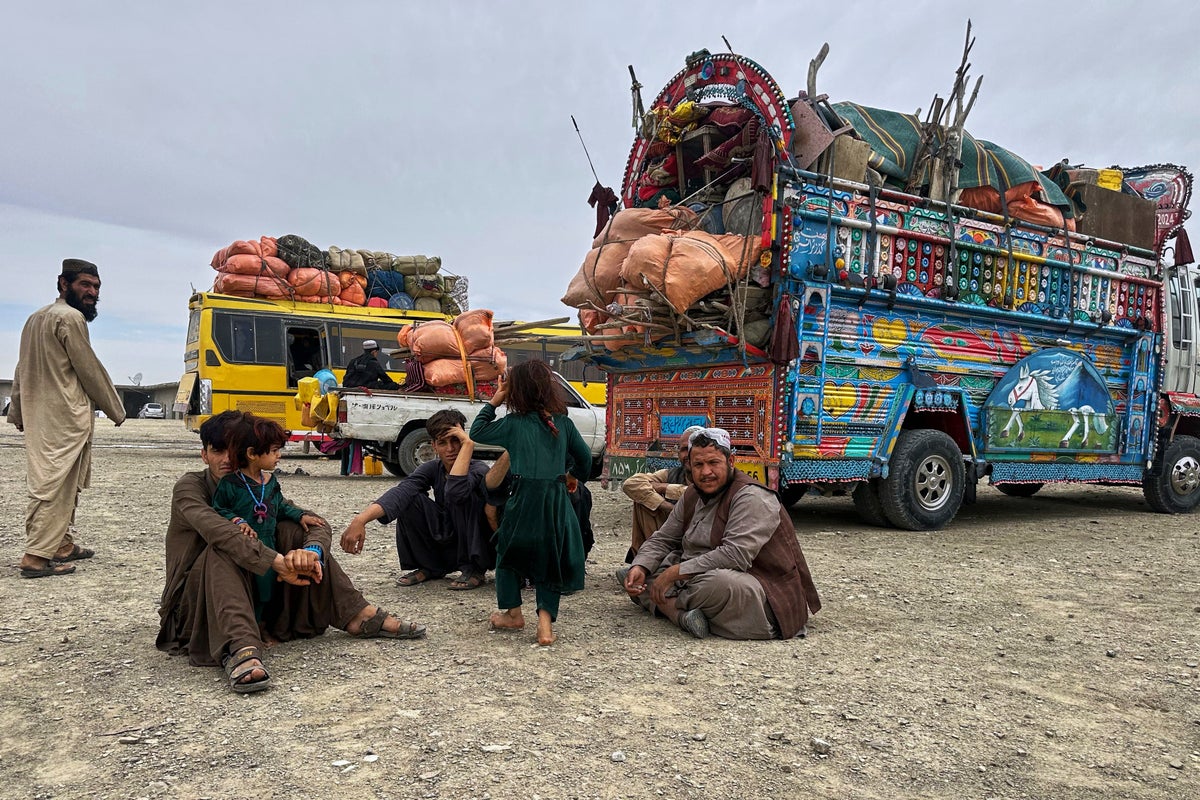
The Trump administration has reversed sweeping cuts in emergency food aid to several nations while maintaining them in Afghanistan and Yemen, two of the world's poorest and most war-ravaged countries, officials said Wednesday.
The United States had initially cut funding for projects in more than a dozen countries, part of a dramatic reduction of foreign aid led by billionaire Elon Musk's Department of Government Efficiency. Aid officials warned the cuts would deny food to millions of people and end health programs for women and children.
The administration informed the World Food Program of its reversal on Tuesday, according to two U.N. officials. An official with the U.S. Agency for International Development confirmed that Jeremy Lewin, the Musk associate overseeing the dismantling of USAID, had ordered the reversal of some of his weekend contract terminations on Tuesday, after The Associated Press reported the cuts.
The officials spoke on condition of anonymity because they were not authorized to brief media.
The WFP said Monday it had been notified that USAID was cutting funding to the U.N. agency’s emergency food program in 14 countries.
It was not immediately clear Wednesday how many of those cutoffs still stood.
One of the U.N. officials said the decision to restore funding came after intense behind-the-scenes lobbying of members of Congress by senior U.N. officials.
The cuts could prove disastrous for millions in Afghanistan and Yemen, reeling from decades of war and U.S.-led campaigns against militants.
The U.S. had been the major funder of the WFP, providing $4.5 billion of the $9.8 billion in donations to the world's largest food aid provider last year. Previous administrations had viewed such aid as a way of alleviating conflict and combating poverty and extremism while curbing migration.
The Trump administration has accused USAID of advancing liberal causes, and has criticized foreign aid more broadly as a waste of resources.
U.S. officials did not immediately respond to requests for comment. State Department spokeswoman Tammy Bruce acknowledged on Tuesday that some of the programs had been cut by mistake and said funding had been restored, without providing details.
Afghanistan
More than half of Afghanistan’s population — some 23 million people — need humanitarian assistance. It's a crisis caused by decades of conflict — including the 20-year U.S. war with the Taliban — as well as entrenched poverty and climate shocks.
Last year, the United States provided 43% of all international humanitarian funding to Afghanistan.
Some $560 million in humanitarian aid has been cut, including for emergency food assistance, treatment of malnourished babies, medical care, safe drinking water and mental health treatment for survivors of sexual and physical violence, according to an assessment by current and former USAID officials and partner organizations. The figure has not been confirmed by the U.S. government.
A separate WFP assessment obtained by the AP showed that food assistance to 2 million people in Afghanistan would be terminated later this year. More than 650,000 malnourished children, mothers and pregnant women would would lose nutritional support.
The United Nations Population Fund said the U.S. had cut $100 million in support for maternal health services for millions of women, as well as gender-based violence services.
The International Rescue Committee said the cuts would affect nearly 1 million people. Its programs include nutritional assistance for tens of thousands of children under 5, as well as counseling services.
“Kids who have seen great violence, who benefit from social work and psychosocial care that we provide, will be cut off,” said Bob Kitchen, head of global emergencies for the aid group.
Yemen
The poorest Arab country was plunged into civil war in 2014 when Iranian-backed Houthi rebels seized much of the north, including the capital, Sanaa. The U.S. supported a Saudi-led coalition that intervened the following year on behalf of the government. The conflict has been at a stalemate in recent years.
The war has led to widespread hunger, and experts warned as recently as 2024 that parts of Yemen were at risk of famine.
The U.S. cuts would end life-saving food assistance to 2.4 million people and halt nutritional care for 100,000 children, according to the WFP assessment.
The U.S. is carrying out a campaign of airstrikes against the Houthis in retaliation for their attacks on international shipping linked to the war in the Gaza Strip.
The WFP had already suspended its programs in Houthi-ruled northern Yemen, where the rebels have detained dozens of U.N. staffers as well as people associated with aid groups, civil society and the now-shuttered U.S. Embassy.
The latest cuts would affect southern Yemen, where the internationally recognized government opposed to the Houthis is based. The WFP assessment warned that halting aid there “carries significant political and security implications and risks deepening the economic crisis and exacerbating instability.”
Last year, the WFP assisted 8.6 million people in Yemen, more than a quarter of its population, including more than 330,000 internally displaced people and 1.2 million with disabilities. Half were women and children.
Kitchen with the IRC said water, sanitation and health support for nearly 2 million people would end, and that while his group and others are seeking alternative sources of funding, there is no real substitute.
“I am fearful that we are going to turn around in months to come and just see the numbers of people who are perishing because there’s just not enough funding to keep them alive anymore," he said.
___
Butt reported from Islamabad and Knickmeyer from Washington. Associated Press writer Sam Mednick in Tel Aviv, Israel, contributed to this report.
Trump tariffs live: China announces fresh 84% levy on US goods
‘Boys will be boys’: Trump administration plays down Musk-Navarro spat
Search is ongoing for multiple shooters after 3 dead and 3 wounded in Virginia
Israeli strike on Gaza apartment building kills at least 23, officials say
Trump calls tariff fallout ‘war with the world’ and gloats over fellow leaders: Live
Who will be hit hardest by China-US trade war as Trump boosts 104% tariff?







